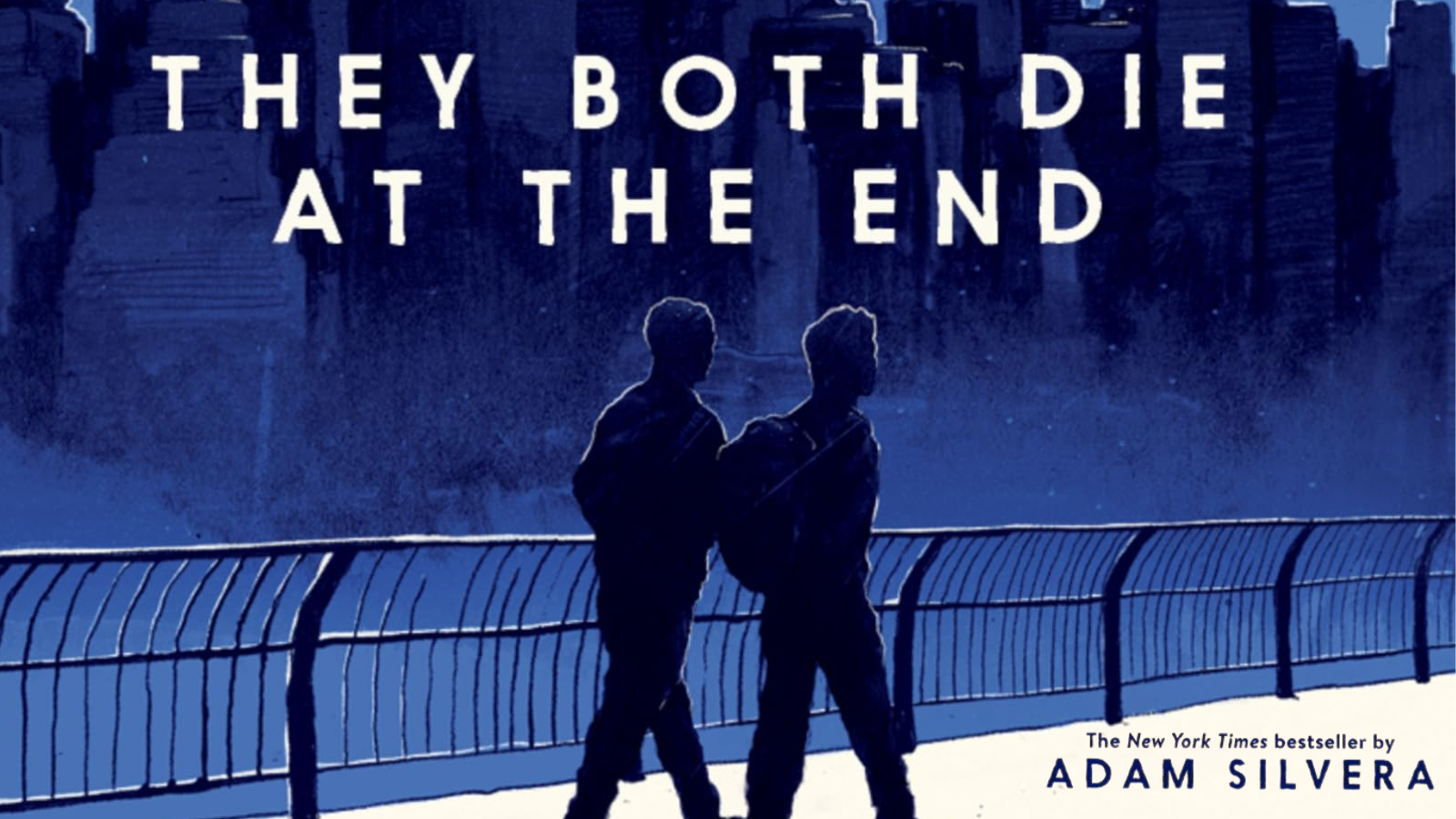
“They Both Die at the End” is probably the best story that tackles the sensitive topic of death. It showcased the great question of what you would do if someone told you that in the next 24 hours, you would face an inevitable death. Would you hide in your home? Or would you try to assemble a funeral for yourself with your friends? The story revolves around the perspective of two main characters Rufus and Mateo. Mateo is what you would call an introverted, innocent, and reserved person who is afraid of the extreme, or adventurous, the type of person to stay in his comfort zone. While Rufus is the complete opposite he is hard-headed, impulsive, and he likes the thrill of life.
Despite their drastic differences, Mateo and Rufus are united by suffering the same fate of getting the Death-Cast call on the same day, notifying them that the next 24 hours they would live would also be their last. Through this shared faith they were united through the Last Friend app, a platform that was designed to connect fellow deckers of those who have been called to live their last 24 hours with someone and not isolated. As the two main characters go forth on their journey of facing their last moments of life, they also confront their fears, regrets, and desires.
In terms of how the story affects me or how it aligns with my own beliefs about mortality, the story does so in a way that it showcases multiple side stories about other people who got called by Death-Cast. For example, in an early chapter, a man who was an aspiring wrestler who got his dream crushed by an injury decided that if he was going to die he would bring others with him he decided to blow up the gym, he used to train at when he got the call. Another aspect that reflected on me was the essence of delusion and denial in another chapter a woman named Delilah Gray got called by Death-Cast but refused to believe it in turn she lived her last moments doing nothing productive resulted in her having a breakdown due to all the regrets she had. Or in a more heroic sense when a firefighter got the call and decided to live his life serving and saving the lives of multiple people knowing he couldn’t save himself.
This was also reflected greatly in our main characters because when Rufus got the call it was during the time he was beating a man named Peck who was his ex-girlfriend’s new boyfriend and at the moment Rufus paused due to the weight of the call he received and he completely lost sight on what he was doing. The same goes for Mateo he was getting ready to live for tomorrow when he got the call and immediately started to what I would say panic silently. Mateo wanted to live his last 24 hours actively but he ended up purposely finding ways to distract himself by cleaning his room and doing tasks that were irrelevant at the time.
Moreover, another striking aspect that the story focuses on is its approach to the fleeting time of life. The combination of Mateo’s reluctancy, carefulness, and choice of not stepping outside clear boundaries inside his comfort zone resonated with me as just like Mateo there are a lot of opportunities that I just let pass by me due to my fear of stepping out of the warmth of my comfort zone. Another is Rufus’s energetic response towards his view of life knowing that it would be over soon made me realize that taking risks is important especially if I don’t want to leave any regrets in my actions. Their contrasting characters made me question myself on how many times I decided to let opportunities pass by not taking any actions or how much time I spent planning for an uncertain “tomorrow”. It also left me challenged in the way I’m currently living my life and whether the way I am currently living would allow me to face death without having any regrets, thoughts that stayed with me while and after I was reading the book.
I find myself always indulging in every line as the story goes on. It made me question myself on what would my actions be if I were to be in the place where Mateo and Rufus are currently standing. It made me question my mortality and how exactly would I handle that predicament. Just as Mateo likes to keep himself inside his comfort zone I also feel the same way I don’t think I would have the courage to go out to the world if I knew that in the next 24 hours, I would be dying. But at the same time, the traits of Rufus also resonated in me that the fact that I only have 24 hours left to live means I need to spend it in a manner that I won’t leave any regrets when I inevitably pass away. Their journey together gave me a seriously long time of introspection about how I would spend my last day and, whether I should stay at home with my family or Seek closure. Or would I take the risks I have been longing to do all my life?
Additionally, another aspect of the story besides the characters is the main issue or main focus of it which is the Death-Cast. Now this aspect struck me the most making me question the nature of it. The idea of knowing when you are about to die feels liberating and paralyzing, it can even be seen in the reactions of the characters in the novel that were called by Death-Cast. While it gives the people the opportunity to say their thanks and do things they would have not done to leave no regrets, it also puts an unliftable weight on their shoulders forcing them to face their death head-on. This overall concept is good on paper but it made me question whether would I want to know when I would die. Would it inspire me to live a more achieving life or would it just scare me to the point where I hid in my room fearing the inevitable death I would face? The book’s depiction of Death-Cast masterfully captured this moral ambiguity, leaving me with lingering questions about whether we are better off embracing uncertainty over certainty regarding our mortality.
All of those “side stories” and most importantly the main characters’ realizations were perfectly done. It made me relate in a way that it made me say to myself that I should be judging their actions because it showed the weight of death and how drastically it can change the way you live. Rage, denial, delusion, and even heroics I believe all of these things would come to my mind if I were to get a Death-Cast call. The story represented all of these feelings in a manner that a reader would relate to the actions that were taken.
The novel also moved me to rethink my view on how I spent my life as how the journey of Mateo and Rufus reflected the importance of living life to the fullest without leaving any regrets. Mateo’s introverted life and tendency to stay in his comfort zone reflected on moments of my life whenever fear held me back from making decisions that greatly impacted my life. While Rufus’s boldness gave me the courage and the fact that he embraced his flaws made me realize that if I want to live a life that is mine I have to embrace those and live without leaving any regrets. The story’s underlying message to live as if we were about to die resonated deeply. It made me realize that while we do not have the control of when or how we are about to die we do have the opportunity to make the most of it.
In conclusion, Adam Silvera’s novel “They Both Die at the End” is an amazing representation of the mortality that we need to face and the way he delivered it through the journey of two young adults also made it resonate greatly to various age levels. Overall Adam Silvera’s novel is great and it made me want to read more about this type of genre. Specially because the book has a sequel titled “The First to Die at the End”.
